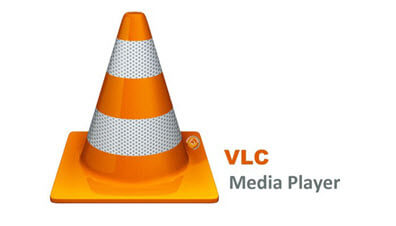 Screen Shots Before VLC
Screen Shots Before VLC
At one time it was nearly impossible to take a screen shot of a movie scene because of a thing called interlacing. If you tried using the Print Screen button, I can tell you from experience that all you would have gotten was a black screen. Eventually, media players developed the ability to take screen shots.
The first media player that I used that could do this was Media Player Classic, which is still available at https://mpc-hc.org/
Then, all I had to do is pause the video where I wanted to save the screen and press Alt + I. Then it would prompt you to save it. I used it for awhile.
I fooled around with VLC, too, at the time, but it didn’t seem to live up to all the hype. I can’t remember when, or even why, but I did eventually switch over to VLC.
Making the Grab
Using the Print Screen button on modern day systems seems to work just fine. It saves the screenshot to the clipboard, so you have to paste the results into some photo editing program and save it. On my desktop keyboard the print screen button is labelled PrtSc, to the right of all the Function Keys.
That is a bit cumbersome, though.
Screenshots With VLC
You can download the latest version of VLC at https://www.videolan.org/vlc/.
Open up VLC and you’ll notice the standard bar of buttons at the bottom of the player.
Now, in the Top Menu, click on View, then click on Advanced Controls.
You will now notice a second smaller bar appear over the first.
The first icon is just a Red dot. This is the Record Button. If you want to record a segment of a video to it’s own clip, just click on it to start it recording. The surrounding area on the button turns blue to show that it’s recording. Clicking on it again will stop the recording. The recordings are automatically saved in your My Videos folder.
If you just want a still picture, to use as your computer background, for instance, then use the next button, which looks like a picture of a camera.
Pause the video at the frame you want to capture. The Play Button becomes the Pause Button when a video is playing. Otherwise, you can use the Space bar to pause the video. Then just click on the Camera Icon.
You’ll notice a thumbnail view of the picture you have just taken in the top left hand corner of your screen. It will also give the path and name of the picture you just took. They usually just go into your My Pictures folder. They will automatically be named something like vlcsnap-3715-04-23-07h00m13s988.png, with the date and time integrated. Movie clips are saved in a similar manner, but in the My Videos folder.
I am telling you from experience, sometimes it’s tricky stopping the video exactly where you want it.
Here’s a tip: Stop it slightly before the scene you want to capture, then keep pressing the letter E on your keyboard. This will move you ahead one frame at a time. The words Next frame appears in the top right hand corner.
Other media players probably have their own method of doing this. Read the help files (like anybody actually does this 🙂), or do a little bit of research online to find information about your particular media player.
—

I haven’t ever needed to do this but still good to know.I always use the Snipping Tool in Windows to take snap shots. The snipping tool is great because it can be used on anything….including websites that don’t allow you to download their images. And snipping tool snaps can often be directly pasted into emails or skype messages without the need to save them to a file
Terry:
When I open VLC and click on MEDIA → OPEN NETWORK STREAM → enter the following url in the ENTER NETWORK URL text box: https://www.soundslice.com/scores/100-riffs
I get a series of error messages. (I was hoping to use the ‘red dot’ RECORD button as described in your article but obviously didn’t get that far).
What am I doing wrong?
Dan
I don’t think this site is really set up for this type of streaming.
I was very interested in your article. Unfortunately, after following your steps, the “second smaller bar appear over the first” never happened. Just to be sure, I did download VLC from your site, but it was the same VLC that I had been using. Anyway I decided that it couldn’t hurt to give it a second try. It may not have hurt but it surely didn’t help. I messed around withthe various options but nothing let me do what I wanted to do – end up with a “sub-clip”.-
PLEASE HELP!!
Thanks
Hi Gerry,
it took a while for me too to find the right place for the settings.
However what Terry writes is true:
“Now, in the Top Menu, click on View, then click on Advanced Controls.”
When clicking in “View” there should be 8 entries. The fifth is “Advanced Controls”.
At least that´s the case with me, and I think that should be valid in general.
Just give it another try.
Greetings
Rosika
Across the top of the media player you should see the options
Media Playback Audio Video Subtitle Tools View Help
Click on the word View and then Advanced options or just click on Video and Take snapshot.
If you don’t see the top menu, right click anywhere on the media player screen with the orange cone , in the menu that comes up click on View, Then click on Minimal
Interface to uncheck it. If this is checked you will not see the top menu list.
Also forgot to mention make sure your not in full screen mode just right click on a video and click on Leave Fullscreen